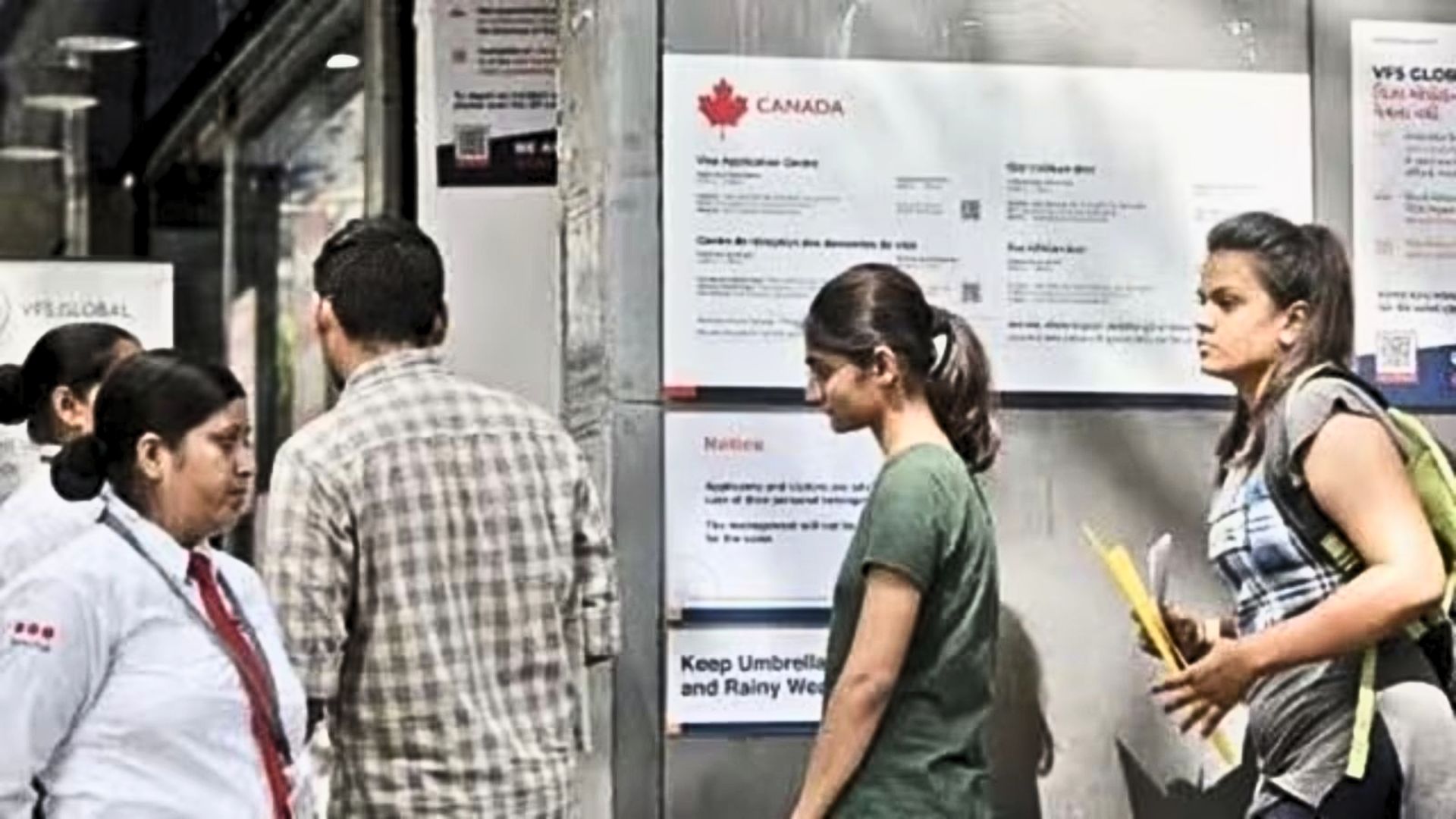
Last week, Pallavi Sharma, a vibrant young woman in her early twenties, saw her aspirations of studying abroad shattered. Pallavi, who achieved a score of 6.5 bands in her IELTS in September last year, had been eagerly planning to pursue an undergraduate program at a Canadian university. Her engagement last month added another dimension to her journey, as her fiancé was set to sponsor her student visa. However, a recent announcement by Canada’s immigration minister, Marc Miller, has disrupted her well-laid plans.
Expressing her disappointment, Pallavi stated, “After completing class 12, I pursued a diploma in computer applications and cleared IELTS with 6.5 bands. Due to financial constraints, my family explored the option of a spouse visa, where the boy wanted to go abroad. Everything was arranged, and I even got engaged. But the new regulations state that spouses of students in undergraduate programs cannot obtain an open work permit. Without financial support from my fiancé’s family, there is no way I can pursue my dreams. My family doesn’t have the means to pay my fees.”
This situation echoes the concerns of others in the state facing similar challenges. Gurpreet Singh Plaha, a resident of Dholewal area in Ludhiana, had plans to send his spouse to Canada in the May intake. However, in the absence of an open work permit, his aspirations have now been dashed. Plaha, who is single, says he was in the process of tying the knot with an ‘IELTS-pass’ girl.
In recent times, such ‘IELTS weddings’ had become a new avenue to Canada in Punjab. A study by Punjab Agricultural University (PAU) revealed that 9.51% of Punjabis migrated abroad on a spouse visa, with over 50% of these migrants being males. This shift was attributed to a new trend of ‘contract marriage,’ where men would marry women with high IELTS bands for study visas, who would later sponsor their husbands on spousal open work visas.
The new regulations specify that spouses of students enrolled in undergraduate programs will not be eligible for an open work permit. This permit will only be applicable to spouses in master’s, doctoral, law, or medicine courses.
The impact of these changes extends to immigration agencies as well. Nitin Chawla from Kapri Education and Immigration Services Inc. in Ludhiana noted, “This will significantly impact not only local immigration consultants but also students whose dreams hinge on flying to Canada. Many immigration consultants’ offices had a substantial portion, around 80%, of files related to spouse visas. Now, with the end of open work permits for spouses of undergraduate students, survival will be challenging for numerous immigration and IELTS institutes.”
The practice of using immigration consultants as informal marriage bureaus is not uncommon, with consultants facilitating alliances between boys and IELTS-passed girls. However, a consultant from Moga revealed, “In many cases, girls used to ditch the groom, and in numerous instances, couples would divorce after obtaining permanent residency in Canada.”
Vinay Hari, a prominent immigration and career consultant in Punjab, asserted that the new rules would put an end to the practice of sending boys to Canada based on IELTS-passed girls. He mentioned, “Spouses can only obtain an open work permit if the partner is enrolled in master’s or doctoral courses. This move by the Trudeau government is aimed at winning the confidence of local voters, especially with elections approaching.”
Hari urged students to reconsider their motives for going to Canada, emphasizing the importance of contributing to Punjab’s economy. He noted, “The market for master’s or professional courses is relatively small in Punjab. This correction was necessary, and many planning marriages with IELTS-passed girls will now pause their plans.”
Devpriya Tyagi, MD of Rightway Airlink Immigration Consultants, clarified that the new rule doesn’t affect students already in Canada on study visas, but it will impact those enrolling from September 1, 2024. Tyagi mentioned, “The IELTS institutes and immigration consultants are adopting a wait-and-watch strategy. The announcements aim to filter the type of students reaching Canada.”
While students in master’s or doctoral courses can still call their spouses with open work permits, the numbers are expected to be minimal from Punjab. Devpriya added, “Students must study in public colleges or universities to secure work permits. Those in public-private campuses will no longer be eligible for work permits.”
Nitin Chawla concluded, “The Trudeau government’s previous relaxations are being rolled back, reflecting on their collapsing system. In response to the announcements, an immigration consultant in Ludhiana has promptly put one branch of his IELTS institution up for sale, signaling the immediate impact on businesses.”
Chawla emphasized a shift in the trend, urging boys to take charge of their education, pass IELTS, and pursue bachelor’s courses independently. “The era of significant demand for IELTS-passed girls is over, at least in the near future,” he declared.